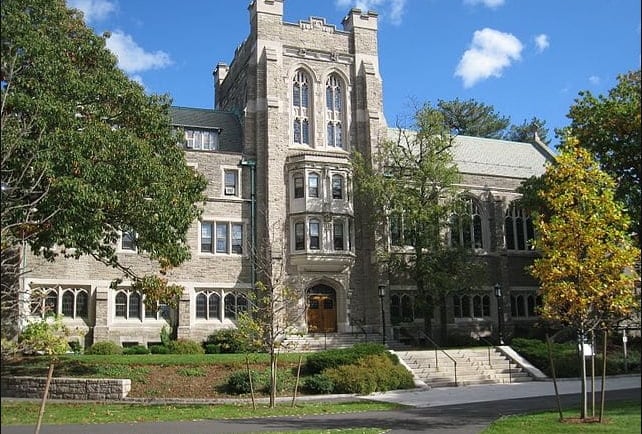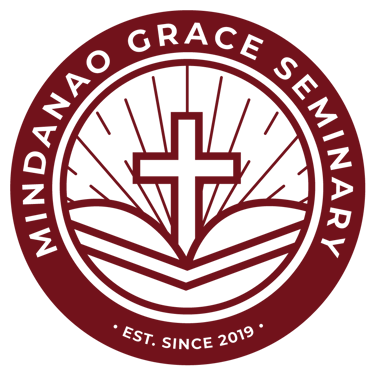What is a Master of Divinity Degree (MDIV)?
The MDiv's purpose is to offer a professional degree that trains the man to be a pastor-theologian. With the potential to make money and the motivation to obtain easy credentials, programs have been created to fulfill these desires. These degrees requirements are often substandard. Many “Master of Divinity” programs offer little more than what could be found in a bachelor’s degree.
Dr. B
7/25/20244 min read


What is a Master of Divinity Degree (MDiv)?
What is a Master of Divinity Degree (MDiv)?
History
Harvard College was founded in the United States on October 28, 1636, by a group of English Puritans. The school was named after John Harvard, who had willed 400 books to the school. It was said that the reason for founding Harvard was that there were pastors “dreading to leave an illiterate ministry to the churches, when our own present ministers shall lie in dust.”(1) Henry Dunster was the first president. He was later ousted for refusal to baptize his infant son, as he had come to embrace adult-only baptism. All the presidents of Harvard during the early years were pastors. The first person to graduate with a doctorate degree was Increase Mather.
Yale University was established in 1701. It was started by Congregationalist ministers in the Connecticut Colony. As they believed that Harvard was drifting from its Calvinistic convictions, they desired a school that would hold to those dear doctrines of their Puritan fathers. Cotton Mather, whose father was Increase Mather, was considered for the presidency of Harvard. The position was given to the liberal minister, Joseph Dudley. Cotton petitioned for the money to build what would become Yale University.
I include this history of Harvard and Yale, as I believe it was there that modern ministerial education was established. Whereas Harvard has gone the way of the world, even denouncing and attempting to erase their past Puritan origins, it did set the standards for other great seminaries that would come later. One example would be the establishment of Westminster Seminary by J. Gresham Machen, in 1929. Machen was a graduate of Princeton. Princeton was considered to be the great seminary of the Presbyterian Church. The faculty included men like A.A. Hodge, Charles Hodge, and BB Warfeild. Machen became disenchanted when the school started to embrace Liberalism. He established Westminster to return to the “old Calvinism” of Princeton.
Seminary Education
From the time of the Puritans until today, we see a long-standing tradition of the Church insisting that ministers be rigorously trained. Certainly, our contemporary times should necessitate, at minimum, these same standards. Weak ministers can only produce weak churches. The Master of Divinity (Magister Divinitatis) is considered to be the standard, terminal degree for a pastor. It is a prerequisite for some denominations before ordination. Given that the degree is for pastors, the program places an emphasis on theology and practical ministry. Some have said that the MDiv should create a pastor-theologian. In 1996, the Association of Theological Schools established that an accredited MDiv program must place an emphasis on certain areas of pastoral education. There must be courses on New Testament Greek, church history, theology and philosophy, pastoral theology, and Old Testament Hebrew. It is common to find MDiv programs that include Systematic Theology and Preaching (Interpretation and Presentation).
The primary thing that sets an MDiv apart from other graduate degrees is the length and the depth of the program. To qualify for a master’s degree in any field, the candidate must possess a bachelor's degree or equivalent. A typical graduate degree is composed of 30 to 48 semester hours. An MDiv. consists of 90 semester hours. A step-down from the MDiv would be a Master of Arts (MA) degree, which entails 60 semester hours. In seminaries, generally, the MA program’s curriculum does not include pastoral theology, counseling, languages, or systematic theology. The Master of Theology (ThM) degree was originally a post-graduate degree for those who already had an MDiv. It was meant to be a transitional degree for the PhD or ThD program. Now, the ThM is offered to those with a bachelor's degree. It is generally a one-year program. This denotes the decline we see in pastoral education.
The MDiv's purpose is to offer a professional degree that trains the man to be a pastor-theologian. Originally, the MDiv was considered to be the height of training for ministers. Sadly, the standards have been lowered. With the potential to make money and the motivation to obtain easy credentials, programs have been created to fulfill these desires. These degrees requirements are often substandard. Many “Master of Divinity” programs offer little more than what could be found in a bachelor’s degree.
“Today, the quality of MDiv degrees varies widely. Some are little more than a series of advanced Sunday school classes, and others are very old school, serious degrees.“ R. Scott Clark (Puritan Board Senior)
How do I know I am getting a real MDiv?
1) We can start by looking at the qualifications of the teaching staff. Do the professors have at least an MDiv or preferably, a post-graduate degree (PhD or ThD)? There are seminaries who offer a MDiv but whose staff are not qualified to teach because they only possess a lower degree (BA, BTh, MA, ThM, etc.). Traditionally, the seminary staff was composed of men who had post-graduate degrees, like a PhD or ThD. We can look at schools like Harvard, Yale, Princeton, and Westminster to see that their teaching faculties were composed of post-graduates. How can one teach what they do not know? How can a man train others at a level he himself has not yet attained?
2) Is this a broad program or a narrow one? The purpose of the MDiv is to provide a solid foundation for pastoral ministry. Does the curriculum include those courses that have been established as necessary for the MDiv degree? If there are no courses on systematic theology, preaching, original Bible languages, and pastoral ministry, it is not an MDiv. Some programs are little more than a series of random, module classes.
3) Is this a 90-semester hour program? If it is not, then this program does not meet the standards of the degree. Seminary degrees, like University programs, are well planned to produce a certain graduate. As previously stated, the Master of Divinity was designed to produce well trained pastors adequate in all areas of ministry.
4) Does this program require a Master’s Thesis? If it does not, then it is not even a master’s degree.
Does it matter?
You owe it to yourself, to the church, and to Christ to get the best possible training you can. Fake degrees and inferior programs will not equip the man to rightly handle the Word or the people. Furthermore, these low-quality programs that attempt to pass themselves off as a Master of Divinity degree are being dishonest. Anyone who would enroll in such a program is enabling and also participating in deceptive practices. Your friends may be impressed with a fake degree, but Christ is not
(1) New England First Fruits, 1643.
